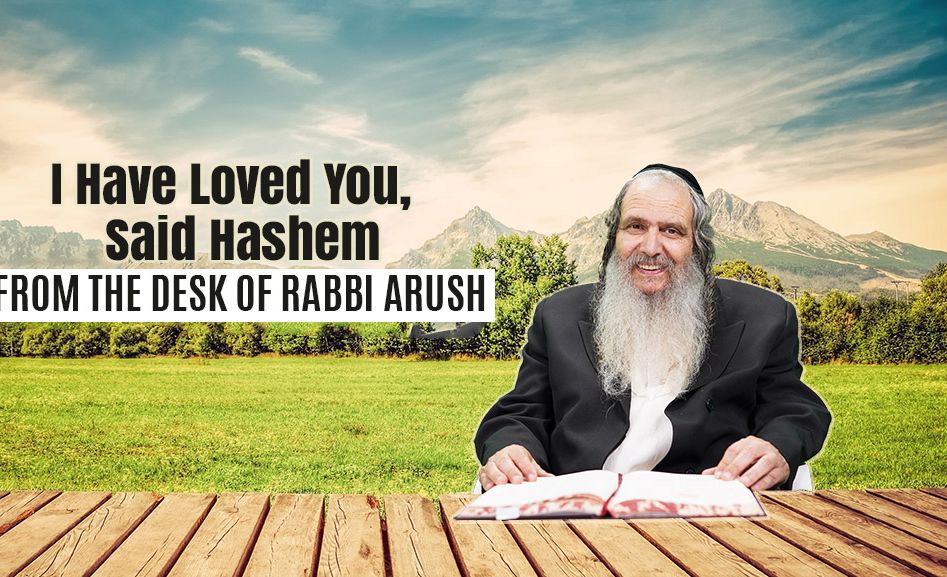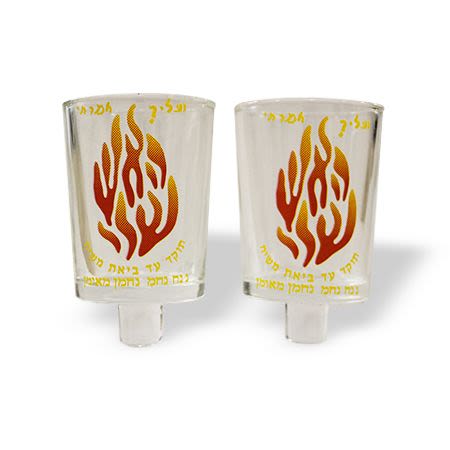
What Are You Afraid Of?
Fearing Hashem is like one-stop shopping: He who fears One, fears no one. If you fear Hashem, then the IRS, swine flu, Iran, or anything else won’t scare you in the least…

Translated by Rabbi Lazer Brody
In Forest Fields, Part 15
What are you afraid of?
There’s a catchy and cogent expression in Hebrew: He who fears One, fears no one.
 Daily personal prayer that includes self-evaluation and teshuva is a clear sign that a person fears Hashem. Teshuva includes confessing our wrongdoing, expressing remorse, asking Hashem’s forgiveness, and resolving to do our best to improve our ways in the future.
Daily personal prayer that includes self-evaluation and teshuva is a clear sign that a person fears Hashem. Teshuva includes confessing our wrongdoing, expressing remorse, asking Hashem’s forgiveness, and resolving to do our best to improve our ways in the future.Repeated transgression without daily personal prayer and teshuva is a clear sign that a person has no fear of Hashem. So, with no fear of Hashem, he ends up deathly afraid of everybody else in the world – his employer, his neighbors, his competitors, the IRS – everyone! Therefore, fear, worries and anxiety can often be traced to a lack of daily personal prayer, which means that one doesn’t truly fear Hashem.
The fear of Hashem (Yir’at Shamayim)
A man of truth knows that he commits serious transgressions on a daily basis. Here he covets another man’s wife and there he looks at a woman other than his wife. He deviates from the truth in business or says something derogative about his neighbor or colleague. His mind may have been far away from the prayer book that morning, or he said his blessings with no intent at all. In one instance, he completely forgets to say a blessing yet in another instance, he makes a blessing that was superfluous. He’s oftentimes disappointed with his lot in life and walks around depressed, which in itself is a transgression of Torah.
In short, a person commits a number of serious sins every single day. When he doesn’t evaluate himself and ask Hashem’s forgiveness on a daily basis, he neither fears Hashem or the consequences of his misdeeds. The lower-level fear of Hashem is a fear of retribution; one who fails to do teshuva on a daily basis doesn’t even have that. The higher level fear of Hashem is the fear that we’ve done something to sadden Hashem, our loving and compassionate Father in Heaven, instead of bringing Him gratification. This is an exalted form of fearing Hashem, for it is rooted in the love of Hashem. Teshuva on this level is called “teshuva from love,” and it has the power not only of cleansing all wrongdoing, but it can convert a person’s transgressions into merits.
A person that seeks a sweet and satisfying life of emuna, teshuva, and joy – a life devoid of worry, anxiety, or fear of anything – must set aside an hour a day for personal prayer, self-evaluation, and simply to share his innermost thoughts with Hashem. It’s impossible to overestimate the benefit one’s soul derives from this daily hour of being completely together with Hashem.
Here’s an example of teshuva in a typical daily personal prayer session”
“Hashem, please forgive me, for I unwittingly slipped up and (describe whatever you did wrong). Please don’t be angry with me, and help me atone for my sins. Please be patient with me and don’t punish me, because I’m sincerely trying my best to do better. I know that I still have a long way to go in overcoming my bodily appetites and bad habits that cause me to sin repeatedly. But believe me, Hashem, I didn’t do this intentionally, and the last thing in the world I want to do is to sadden or disappoint you. I’m truly ashamed of what I did, and I beg your forgiveness. Please give me the inner strength and courage to do what’s right, and to avoid making the same mistakes in the future. Hashem, please don’t hide Your Divine Presence from me.”
“Hashem, I’m only flesh-and-blood. My evil inclination always seems to know when to hone in on my weaknesses. I feel like a glass maker that works for days on a fine crystal goblet – with one thoughtless nudge of the elbow, the goblet is smashed into smithereens on the floor. Hashem, I have such a tremendous desire to do Your will, but I repeatedly crash on the floor like broken glass. Please pick me up and help me start anew. Bring me close to You. Please help me overcome my evil inclination and to do Your will so I won’t transgress anymore.”
“Master of the world, my body aches (state your sickness – physical or emotional – and what part of your body hurts or fails to function properly). You are surely just in everything You do. If I hadn’t sinned, I most likely wouldn’t be suffering such anguish now. But please, Hashem, show me what I did wrong and why I’m suffering. Help me correct the root cause and guide me on the path of true and complete teshuva. My beloved Father in Heaven, please forgive me for my wrongdoing, for the pain of knowing how much I’ve gone against Your will is even more severe than my bodily pain. Please be patient and compassionate with me, and help me return to You with a pure and loving heart…”
Such daily personal prayer saves the wear and tear of fearing the police, the criminals, terrorists, stray dogs, the government, income tax or anyone else. Fearing Hashem is therefore like one-stop shopping: He who fears One, fears no one. The fear of Hashem is the gate to spiritual awareness, Torah comprehension, and humility. One who fears Hashem also merits the gift of dedication in prayer, where he is able to cast aside his ego and to completely subjugate himself to Hashem.
One of the finest benefits of a daily hour of personal prayer is emuna. A person that attains emuna is a person that lives a good life of joy and satisfaction.
A person that speaks to Hashem daily is capable of bouncing back on his feet after every setback. He’s not heartbroken or depressed about his failures, because He knows that Hashem will not only pick him up, but help him to reach new heights, for in spirituality, rebounding from a descent leads to an even greater ascent. Such an individual never despairs, for he always has Hashem to turn to. In the most trying of times, he maintains his self composure for he knows that Hashem is always there to protect him and rescue him from all peril. To paraphrase a popular song from several decades ago, he just calls Hashem’s name and no matter wherever he is, Hashem is there for him.
To be continued.













12/08/2009
Thank you! I recently did something I am not proud of. I am ashamed. I’ve been feeling depressed because of it. The advice in this article has given me hope to pick myself up and to make peace with Hashem.
Thank you so much to the staff at Breslev.co.il for your work. You have no idea how many anonymous readers you have helped. G-d bless you all!
12/08/2009
I recently did something I am not proud of. I am ashamed. I’ve been feeling depressed because of it. The advice in this article has given me hope to pick myself up and to make peace with Hashem.
Thank you so much to the staff at Breslev.co.il for your work. You have no idea how many anonymous readers you have helped. G-d bless you all!